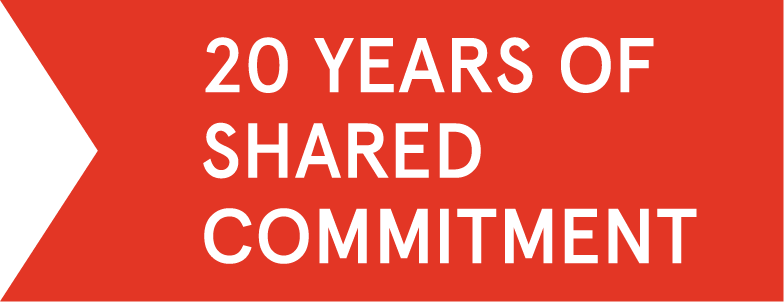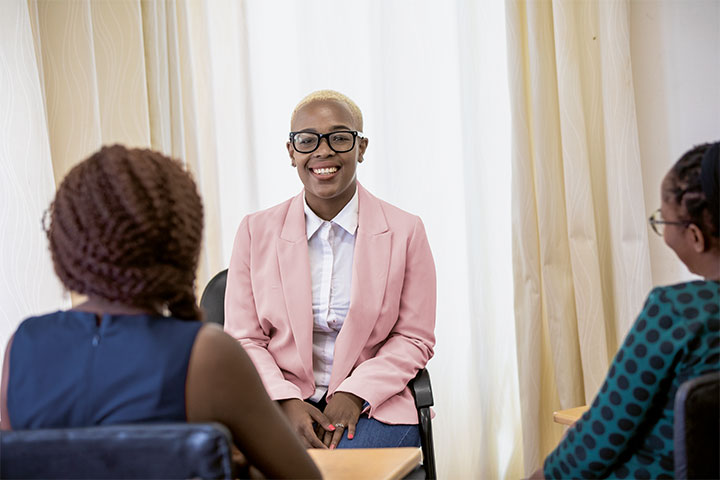Article by our psychologist Bahati Kasimonje in cooperation with Medicus Mundi Switzerland published first in their MMS Bulletin.
Healthcare Implications
Women are in the frontline of the pandemic. The World Health Organisation estimates that 70% of the health and social sector’s workforce in Africa are women, although this number decreases in leadership positions (Boniol et al., 2019). This imbalance coupled with the prevailing social norms in which women are the main caregivers to the unwell in the home potentially exposes women to COVID-19 infection at higher rates than men. This consequently shifts the disease burden of COVID-19 onto women (Brookings, 2020).
Financial Implications
Women in Africa are the majority of the poor, unemployed, working in the low-income casual employment and in the informal sector where income is insecure (African Union, 2020). COVID-19 related restrictions which have included national lockdown measures compromise trade particularly in the informal economic sector and women’s incomes are likely to be affected. This is on the back of women bearing up to three times more unpaid domestic work than men (Brookings, 2020). African women and girls traditionally are the child-minders, cooks, and carers of the sick in the home. COVID-19 further complicates already existing economic inequalities. While employment and financial loss due to COVID-19 has been widespread, women remain the most vulnerable. Newlands Clinic, an HIV outpatient treatment facility run by the Ruedi Luethy Foundation, a Swiss-based Private Voluntary Organization runs an economic empowerment project for women under their care. The empowerment project aims to assist extremely vulnerable women within the cohort by providing mentoring and capital to start small scale income generating projects. While the women under this project have thrived since the pandemic, most have experienced increased difficulties in trade logistics and consequently reduced incomes. While lockdown measures were instituted in order to contain the virus, these also restricted mobility and trade within their sector. COVID-19 often presents the dilemma of forgoing vital income generation activities or defying lockdown measures at the risk of COVID-19 infection and possible legal ramifications (Brookings, 2020).
Psychosocial Implications
Violence against women pre-COVID-19 was an existing pandemic with 1 in every 3 women experiencing physical violence globally (Dlamini, 2021). In Zimbabwe the number of reported cases of Gender Based Violence (GBV) increased by 40 percent during the initial COVID-19 lockdown compared to pre-lockdown trends (World Vision, 2020). National GBV hotlines also report an increase in GBV cases against adolescent girls as well as exposure to negative family coping mechanisms such as child marriages for economic gain as an indirect consequence of reduced household income (Violence and Act, 2020). Moreover, COVID-19 related school closures prevent female learners from accessing the protective effects of attending school, obtaining an education and traditional channels of reporting abuse (Martin and Ahlenback, 2020). This increases their vulnerability to sexual exploitation, unplanned pregnancies and dropping out of school. This education emergency particularly holds true for girls from rural or low-income households where paradoxically the need is the greatest (Martin and Ahlenback, 2020). It is estimated that adolescent pregnancy will increase by 65 per cent in sub-Saharan Africa due to COVID-19 school related closures (World Vision, 2020). Early pregnancy is associated with higher health risks for mother and child as well as limited educational and economic opportunities collectively perpetuating the cycle of poverty. The increased trend of abuse in its different forms towards girls and women during COVID-19 is not unique to Zimbabwe. Many African countries have reported an escalation of GBV during COVID-19 lockdowns (The African Union Commission - Women, 2020; Dlamini, 2021). The socio-economic stress, incapacity to flee abuse, limited support networks and access to service providers associated with COVID-19 lockdowns have worsened pre-existing destructive social norms and gender inequality.
A psychological perspective
The remarkable social and economic changes brought by COVID-19 can alter one’s mental health and the ability to cope (Asim et al., 2021). Bronfenbrenner’s ecological theory highlights how human development and mental health is determined by the different types of environmental systems (Eriksson, Ghazinour and Hammarström, 2018). A person’s environment is influenced by five different levels which include a microsystem (immediate environment), mesosystem (interactions between microsystems), exosystem (surrounding system), macrosystems (cultural context) and chronosystem (changes occurring over time) (Eriksson, Ghazinour and Hammarström, 2018). These systems are interrelated and play a role in shaping a person’s behaviour, from immediate settings such as the family to broad cultural norms. Women have a higher prevalence of risk factors within their micro and mesosystems, with already higher rates of pre-existing common mental health disorders such as depression, their mental health is further complicated by increased trends of GBV in the home. Within their exosystems, COVID-19 has limited their access to support network and services. Additionally, the chronic socioeconomic strain of working and trading in a COVID-19 context poses as a mental health risk. The societal and cultural attitudes, values, and ideologies within their macrosystem which have gender inequality undertones further deepen the effects of the pandemic on women’s mental health. The chronosystem highlights how COVID-19 as an event and a transition from the modus operandi will likely have a chronic impact on women’s mental health. While women are more susceptible to mental health challenges during COVID-19, it is important to note their resilience and ability to function in crisis situations such as the COVID-19 pandemic.
Recommendations
The COVID-19 pandemic may have intensified pre-existing gender inequalities and the associated gender specific effects suggest that it would be beneficial for:
- Governments to invest in women’s healthcare leadership roles as they may be more in touch with the realities of gender specific issues and afford the necessary attention towards their alleviation
- Targeted interventions that could cushion small scale enterprises run by women such as access to training, mentoring and financial support.
- Local government and NGO efforts to provide support systems that can train on digital entrepreneurship – adjusting to the new normal of predominantly online businesses.
- Provision of easy access to family planning/pregnancy prevention solutions.
- Investment in differential learning or vocational pathways for girls who have dropped out of school to obtain a qualification and skills.
- Access to sanitary ware for women in remote settings as this is often a barrier to consistent business and school.
- Disseminate information on the increase of GBV and provide free accessible services for survivors as well as treatment and prosecution of preparators.
- Engagement and involvement of men in campaigns against GBV.
- Local governments and private sector investment in African mental health structures and services
- All-inclusive programs by local governments to prevent pervasive poverty realizing the interconnectedness of social pressures, GBV, and crime.
In conclusion, although the pandemic has changed the way of life for the global community, COVID-19 has a significant gender dimension as girls and women carry the burden of care, experience negative economic and education shifts, are more exposed to physical and psychological violence with limited access to services. This has mental health implications. A psychological ecological outlook offers a way of simultaneously emphasizing the individual and contextual impacts of COVID-19 particularly on women. Applying a gendered lens on the impact of covid 19 on women does not take away the male experience of COVID 19 however it offers an opportunity to inform policies and strategies to address gaps and think on sustainable solutions and responses to COVID-19 that leaves no one behind.
Reference List
African Union. (2020). Framework Document on the Impact of COVID-19 on Gender Equality and Women’s empowerment: African Union Guidelines on Gender responsive Responses to COVID-19.
Available at https://au.int/sites/default/files/documents/38617-doc-gewe_and_covid_19_eng.pdf
Asim, S. S. et al. (2021) ‘Assessing Mental Health of Women Living in Karachi During the Covid-19 Pandemic’, Frontiers in Global Women’s Health, 1(January), pp. 1–9. doi: 10.3389/fgwh.2020.594970.
Boniol, M. et al. (2019) ‘WHO | Gender equity in the health workforce: Analysis of 104 countries’, World Health Organization, (March), pp. 1–8. Available at: http://apps.who.int/bookorders
Brookings (2020) ‘Foresight Africa 2021’, Foresight Africa, p. 12.
Available at: https://www.brookings.edu/research/foresight-africa-2021/?gclid=CjwKCAiA9vOABhBfEiwATCi7GJvUb4NoRXlfFVJ0QOGQys-WHqZPdfWy9fZyzZn2a8i2Tsww3qu2lRoCCksQAvD_BwE
Dlamini, N. J. (2021) ‘Gender-Based Violence, Twin Pandemic to COVID-19’, Critical Sociology, 47(4–5), pp. 583–590. doi: 10.1177/0896920520975465.
Eriksson, M., Ghazinour, M. and Hammarström, A. (2018) ‘Different uses of Bronfenbrenner’s ecological theory in public mental health research: what is their value for guiding public mental health policy and practice?’, Social Theory and Health, 16(4), pp. 414–433. doi: 10.1057/s41285-018-0065-6.
Martin, R. and Ahlenback, V. (2020) ‘Stopping Abuse and Female Exploitation ( SAFE ) Zimbabwe Technical Assistance Facility Acknowledgements ’:, (November).
The African Union Commission - Women, G. and D. D. (AUC-W. P. (2020) ‘Gender-Based Violence in Africa During the Covid-19 Pandemic’, African Union Commission, pp. 8–15. Available at: https://au.int/.
Violence, G. B. and Act, E. A. (2020) ‘ Meet all the recommendations in the World Vision Global Aftershocks : Access Denied report : Aftershocks of COVID-19 on Girls in Zimbabwe’, pp. 19–21.
WANEP (2020) ‘Thematic report: the impact of COVID-19 pandemic on women: lessons from the Ebola outbreak in W/Africa’, West Africa Network for Peacebuilding, (June), pp. 1–9.
Available at: https://www.preventionweb.net/files/73779_thematicreportfinaltheimpactofcovid.pdf.
World Vision (2020) ‘COVID-19 Aftershocks : Access Denied Teenage Pregnancy Threatens To Block A Million Girls Across Sub-Saharan Africa From Returning To School’, pp. 1–32.


